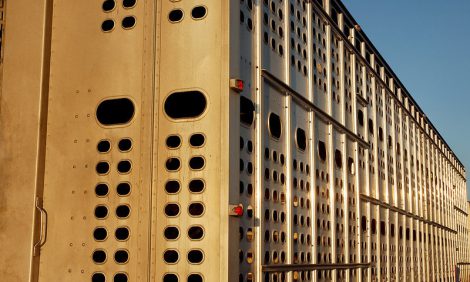



Vaccinate Calves against Pneumonia to Fulfil their Productivity Potential
ANALYSIS – Farmers are shifting their view of calf pneumonia vaccination away from immediate disease prevention towards reaching a calf’s maximum lifetime potential, according to a survey conducted independently this year for Zoetis.The survey involved over 250 farmers, nearly half of which expressed a confidence level of 80 per cent or above that vaccinated calves would have a better lifetime performance than unvaccinated ones.
The responding farmers were a mixture of dairy farmers, calf-rearer finishers and suckler herd owners attending the Beef Expo, Livestock Event and South West Dairy Show.
Speaking in a conference call announcing the survey results, Zoetis vet Carolyn Hogan said that the findings showed an interesting change in mindset.
She said the results represent a drive towards including vaccination as part of a more positive overall calf management strategy including good nutrition, weaning management, suitable housing and so on.
Impact of pneumonia on calves can last long after recovery
Ms Hogan described the huge cost of respiratory illnesses to the dairy and beef sectors, with 67 per cent of pneumonia cases occurring in calves less than 3 months old. Pneumonia is the biggest killer of calves between one and six months.
She emphasised the importance of calf health in the early days for later productivity.
She said that a lot of disease occurs at a young age, and farmers often think that calves have got a long time to get over the effects of illness and it won’t affect the animal’s meat or milk production in the long run.
However, studies have shown that this is not the case, and the first few months of a calf’s life is critical.
“When we get disease in young dairy heifer calves, it impacts their lifetime production - it will delay their age at first calving, can impact first and second lactation yield, and can reduce longevity in the herd,” Ms Hogan said.
When lung lesions hit beef calves, Ms Hogan said severe cases at six months of age could cause calves to finish 124kg lighter in a 22-month finishing system.
“So it isn’t just about a coughing calf at that moment in time – we know now that these diseases impact long-term productivity.”
Ms Hogan concluded from these studies that vaccinating calves as early as possible is key, to prevent calves developing respiratory disease in their period of greatest risk.
Infection may not be visible
The vet added that sub-clinical infection is another important reason for farmers to implement a vaccination plan even when they haven’t seen any signs of respiratory illness.
Calves can be infected with pneumonia pathogens without showing any outward symptoms, meaning their infection would not be noticed by farmers, but it could still be impacting on their productivity. Underlying lung damage can limit growth rates.
Ms Hogan explained that this was because cattle are traditionally animals targeted by predators – meaning it would not be advantageous to show signs of illness.
Focus on profitability factors that can be controlled
Practising vet David Parkins, who looks after various beef, sheep and dairy units around Hexham in Northumberland, said that he had seen the full range of pneumonia problems during his fifteen years there. He said that vaccinating calves early on helps to save his farmers money, by ensuring the calves can achieve better feed conversion efficiency and grow to their full potential.
Early vaccination also helps reduce business expenditure on antibiotics, which as well as a cost saving is increasingly important to prevent growing levels of resistance to these important drugs.
Mr Parkins said that although antibiotics can save young calves, they often do not grow very well afterwards.
He said the cost of his preferred intranasal vaccine depends on the vet providing it, but it is likely to cost between £6.50 and £7.50 per dose.
Ms Hogan highlighted that concentrating on the profitability aspects that farmers can control is a good strategy.
“Market conditions are such that margins are getting squeezed – there’s a lot of elements that farmers can’t influence, but certainly how they manage the animals on their farm, and maximising the productivity of the animals on their unit, is very much under their control,” she said.
Commenting on the survey results, Mr Parkins said he too had seen a change in mindset of farmers towards prevention rather than cure, and added he was “glad to see it finally sinking in”.
But he emphasised that vaccination was just one part of a management plan involving complex, inter-related factors such as sufficient colostrum provision, good ventilation in housed calves, and clean bedding.
Zoetis has recently completed a review of the research on this topic, which is published in the advisory booklets ‘Inside every calf lies a lifetime of productivity’, available in beef and dairy versions.
Click here to view the dairy booklet, or click here to view the beef booklet.



